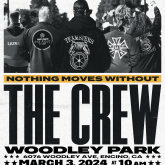Considered one of Sacramento’s most influential and effective lobbyists, Barry Broad has served Teamster interests for a quarter of a century. From 1985 to 1994, he served as Legislative Counsel for the California Teamsters Public Affairs Council, the political arm of the Teamsters Union. In 1994 he formed Broad & Gusman, a law firm that specializes in government relations and administrative law and continues to represent California Teamsters and their interests.
QUESTIONS:
As a Teamster Lobbyist when did you first get involved in the effort to protect California productions?
In the late 1990s, with the urging of the Hollywood Teamsters, we began to press the Legislature to pass bills to stem the flow of runaway productions. This came in response to the passage of economic incentives in Canada and other states that were beginning to lure productions away from Hollywood.
What role did Teamsters Local 399 and Leo Reed play?
Under Secretary-Treasurer Leo Reed’s leadership, Local 399 was the first Hollywood union to recognize the danger of runaway production and urge us to act. I remember first meeting Secretary-Treasurer Leo Reed’s staff when they came to Sacramento to help lobby for the first incentive bill.
In 1999 the California Teamsters Public Affairs Council was instrumental in introducing two bills that would have provided studios with incentives to shoot in California.
Why did the assembly fail to pass State Assembly Bills 358 & 484 in 1999?
Our biggest problem back in 1999 was the perception in the Legislature that an incentive bill would benefit wealthy producers, studios, and above-the-line movie stars rather than the below-the-line employees who are the foundation of the entertainment industry.
Why, more than a decade later, was a measure finally passed?
We were able to educate Legislators as to the enormous value of the entertainment industry to the economy of the State of California. Every dollar spent on motion picture and television production has a huge multiplier effect in the economy, benefiting thousands of workers who are employed by suppliers, vendors, and other businesses.
What does the new measure provide?
$500 million in incentives over a five-year period for productions that were scheduled to shoot elsewhere but will remain in California.
Where does the support come from?
The support has come from organized labor, local governments, and the entertainment industry.
Where does the opposition come from?
The opposition typically comes from those who are concerned that the incentives are too expensive or that incentives should be directed to other industries.
What is the future of rebates and incentives?
I think that, given the current state of the budget, there are not likely to be new incentives until the economy recovers. However, the Teamsters are working closely with other labor unions and always looking for an opportunity to help preserve work at home.
What should Teamsters 399 continue to do?
It is crucial for Teamsters Local 399 to continue to defend the incentive program that we have and protect it from being repealed.

